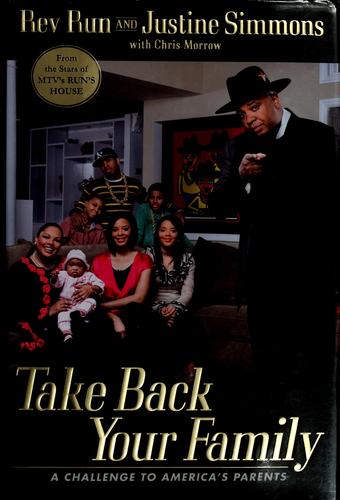In an age where the traditional family structure seems constantly under siege, Take Back Your Family: How to Raise a Healthy, Happy Family in a World Gone Mad by Joseph A. Simmons, published in 2006, offers a refreshing and, some might say, counter-cultural perspective. Simmons, a seasoned pastor and family counselor, isn’t just theorizing; he draws from his years of experience working with families facing a myriad of challenges. This book isn’t just a nostalgic look at the past; it’s a practical guide, rooted in faith and common sense, aiming to help modern families navigate the complexities of today’s world. The book’s relevance stems from a growing concern about fractured family units and the impact of external pressures on family life. Find on Amazon.
Content Overview
The core of Take Back Your Family revolves around the idea that families need to be intentional in their actions and decision-making to thrive. Simmons doesn’t shy away from addressing tough issues; he tackles the impact of media, the importance of parental authority, and the necessity of instilling strong moral values. The book is structured around key areas of family life, starting with defining the family’s spiritual foundation and moving to practical advice on communication, discipline, and cultivating healthy relationships. He argues that a family built on solid, biblically-based principles can overcome the challenges posed by a secular society. The audience for this book is clearly parents, particularly those who are seeking guidance in raising their children according to traditional values.
Practical Application
Simmons’ approach isn’t purely theoretical. He provides tangible advice that readers can implement in their daily lives. For example, he stresses the importance of family mealtimes, suggesting they are not just for nourishment but crucial for bonding and communication. He provides practical tips on how to establish routines, create a positive home environment, and handle conflict constructively. One particularly compelling example is his emphasis on the power of parental consistency; he argues that children thrive in an environment where expectations are clear and consequences are predictable. This isn’t about imposing strict rules, but rather about providing a secure and loving framework within which children can grow and flourish.
Research & Authority
Simmons’s authority comes not just from his professional background but also from his deep understanding of biblical principles. While he doesn’t present extensive scientific research, he draws heavily from his pastoral experience and counseling sessions. His work is more of a synthesis of traditional wisdom and practical experience than an academic study. This approach resonates with a specific audience that values faith-based guidance. The strength of the book lies in its ability to connect with readers on a personal level, offering relatable examples and compassionate advice. He acknowledges the difficulties of modern family life and provides a hopeful, practical path forward.
Writing Style & Narrative Techniques
The writing style in Take Back Your Family is clear, accessible, and conversational. Simmons avoids complex jargon, opting for a down-to-earth approach that makes the book easy to understand. He uses personal anecdotes and real-life examples to illustrate his points, making the book both informative and engaging. The narrative pacing is steady, with each chapter building upon the previous one. There’s a consistent tone of encouragement and hope throughout the book, suggesting that even families facing significant challenges can experience positive change. The book feels like a conversation with a wise and experienced mentor.
I found the book to be both challenging and reassuring. As a parent myself, I resonated deeply with Simmons’s call for intentional parenting. There were times I felt challenged to reconsider my own approaches to family life, but it was always done with a spirit of grace and understanding. I found the chapter on the importance of communication particularly helpful, and it encouraged me to prioritize deeper conversations with my children, moving beyond the surface level of daily routines. It highlighted how the small moments – a shared meal, a bedtime story – can create a lasting legacy of love and connection within the family. See pricing on Amazon
Conclusion
Take Back Your Family isn’t just another parenting guide; it’s a call to action. It’s about reclaiming the family as a sacred institution, a place where love, respect, and faith are nurtured. It’s a book that matters because it addresses the heart of many modern family struggles, offering a timeless solution rooted in traditional values. For parents who are seeking a faith-based approach to raising their families, this book is an invaluable resource. It provides both practical guidance and spiritual encouragement, reminding us that family life, while challenging, can be incredibly rewarding. If you found value in the insights of authors like Dr. James Dobson, you will likely find a similar resonance with Joseph Simmons’s work. For those looking for a more contemporary approach to family dynamics, “The Whole-Brain Child” by Daniel J. Siegel and Tina Payne Bryson would make a great counterpoint to this read, providing a different perspective on child development. Overall, this book is a worthwhile investment for those who want to build strong, loving, and resilient families. It is a guidebook to navigate the complexities of modern parenting with purpose and faith. Buy now from Amazon

